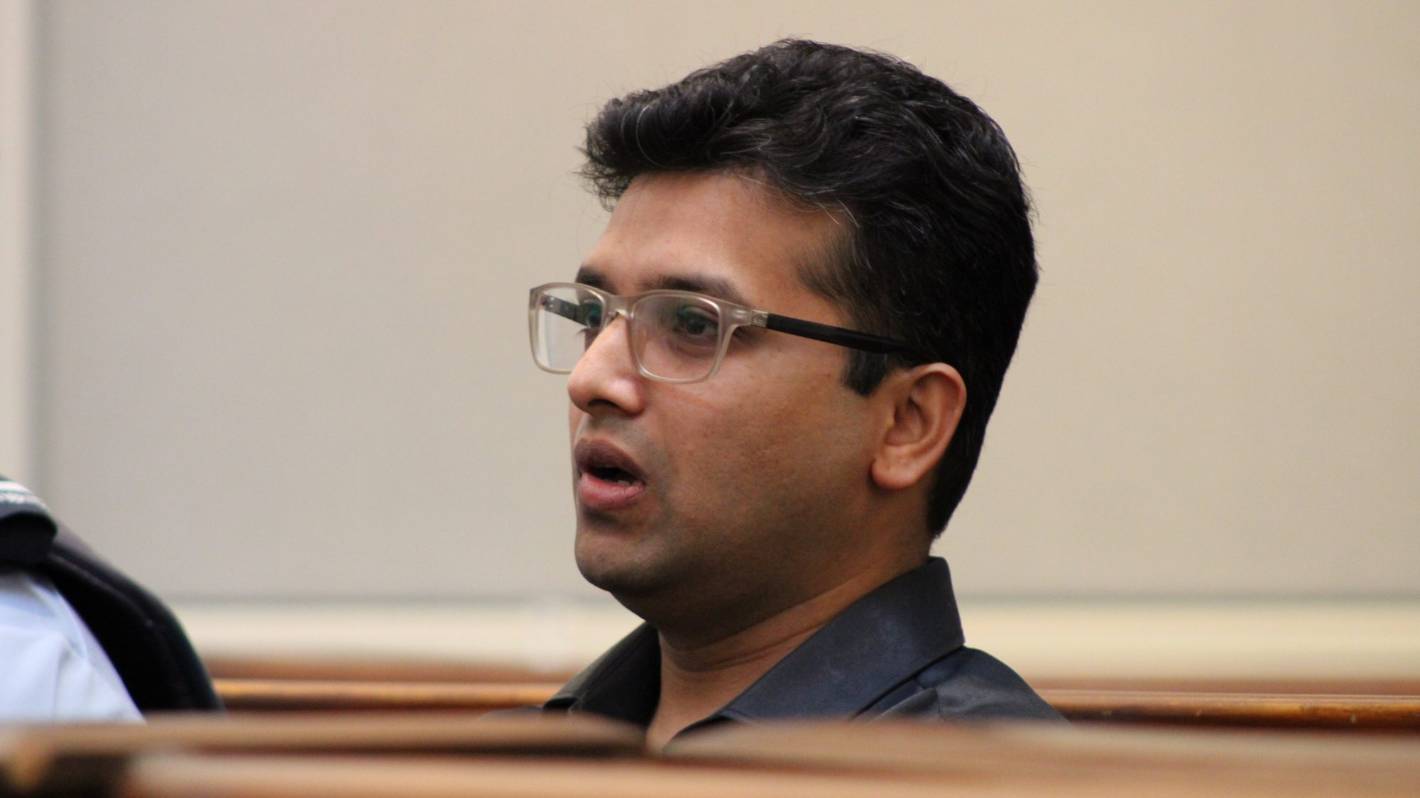
Preetam Prakash Maid (32) appeared in the Dunedin District Court this morning after a jury in November last year found him guilty of a charge laid under the Aviation Crimes Act.
The court heard today that the defendant maintained his innocence.
But Judge Michael Crosbie called it a “strong circumstantial case” against the defendant who had previously trained staff in screening for restricted items including improvised explosive devices like the one he constructed.
“You exploited your role so as to breach security protocols,” he said.
“This was not a stunt by a larrikin or a cry for help by someone with mental-health issues... There was, in my view, a high degree of premeditation and planning.”
The judge called the incident cynical and cruel.
“The country was reeling and mourning,” he said.
Maid had been vocal with superiors about what he perceived to be lax security in some areas of the airport and the Crown, at trial, said the bomb hoax was his way of exposing those shortcomings.
On March 17, 2018, swipe-card data showed the defendant twice entered a rarely-used corridor which led to the dangerous goods store, spending a total of 20 minutes in there.
Maid took items from the store room - a Soda Stream gas canister, a decommissioned cellphone, and red and black wiring - and stashed them in his bag.
Later, CCTV caught him borrowing tape from the reception desk of the aviation security offices.
The Crown said that was when he was assembling the fake bomb.
Among hours of video played for the jury, Maid was also captured on video making an unscheduled trip to the car park.
It was then that he stashed the laptop bag containing the imitation explosive device in the car he knew he would later use to conduct a perimeter patrol of the airport premises.
During that task, Maid slipped the bag from the back of the vehicle into the alcove of a hut at the north end of the runway and reported the finding to his superiors.
An experienced Defence Force staff member who X-rayed the item believed it was a functional bomb. He called it the most sophisticated he had ever seen in New Zealand and on par with those he had seen overseas.
Once the item was neutralised, it became clear the parts inside the laptop bag had came from within the airport. It was an inside job. And, strangely, the fake bomb came with a cryptic handwritten note, wrapped around the bag's handle.
“A: Alpha, B: Birds, C: Crash, D: Dunedin, E: Emergency, F: Fools,” it said.
That writing was compared with a sample of Maid’s and the similarities were clear.
A forensic document examiner gave evidence that she was convinced the defendant had penned the note.
Crown prosecutor Richard Smith said the timing of the hoax when aviation security were on high alert was an aggravating feature of Maid's offending.
“The sheer placing of a bag would've been enough to cause suspicion,” he said.
“Mr Maid took that a step further and the construction of that very realistic imitation must've amplified the alarm caused.”
Defence counsel Deborah Henderson accepted her client's actions constituted “a gross breach of trust”.
She referred to a psychological report on Maid which suggested he may have been triggered by the mosque shootings, a video of which he had viewed.
The court heard that in 2008 in Mumbai, Maid dragged a young girl to safety after she had been shot but she later died.
Judge Crosbie though said little weight could be placed on the theory since the defendant maintained his not-guilty stance.
Maid was referred to as “intelligent and articulate” by Probation after a pre-sentence interview but his explanation of events appeared “rehearsed”.
The defendant was ordered to pay $6000 reparation.












